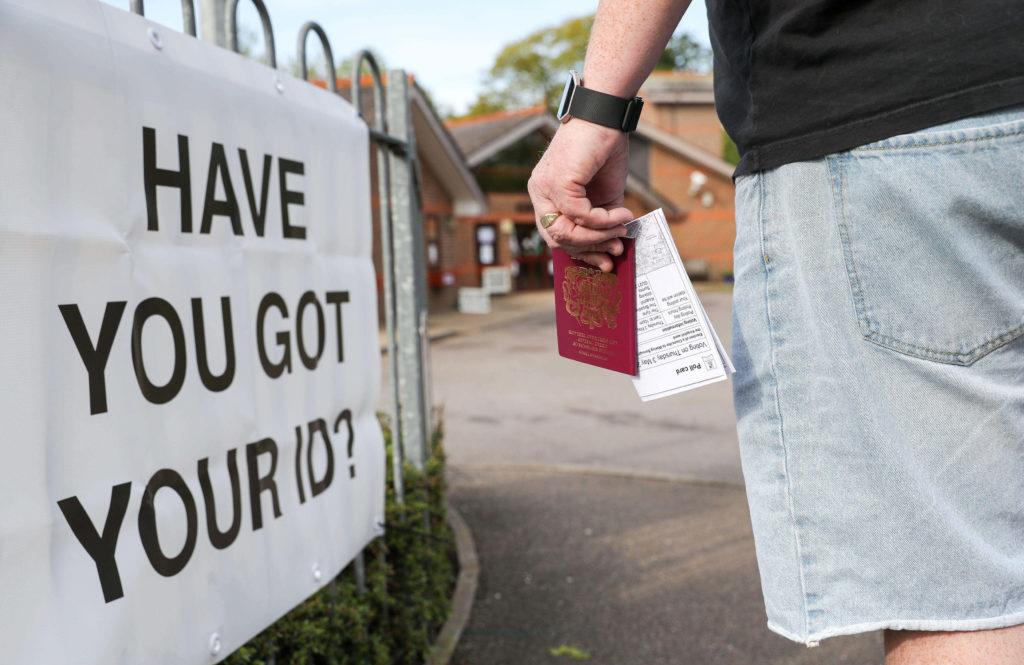A home office minister has said that claims young people will be unfairly disadvantaged by the introduction of voter ID at the local elections are “categorically untrue”.
It comes as extensive planning is underway to get councils ready for the local elections on May 4, with everyone voting in-person in England expected to show identification for the first time.
Critics say the changes will damage democracy by making it harder for some to vote and that instances of voter impersonation and fraud are incredibly rare.
Responding to these criticisms, the policing minister Chris Philp told Sky News: “One of the issues with voter impersonation is, by definition, you don’t know when it’s happening. And when you can turn up to a polling station — as you currently can — and say ‘my name is John Smith. I live in number 10 Acacia Avenue’, that’s it, you just get given the polling card”.


He added: “I think in order to have absolute confidence in the ballot, I think saying you need some form of ID in order to vote in-person on the day is a reasonable thing to request. There are 20 forms of ID that are acceptable”.
Challenged on the idea that some young people may not have access to requisite forms of ID, Mr Philp explained: “your suggestion that somehow young people are going to be unfairly disadvantaged is categorically not true. If anything, it’s the other way around. But the main point is that 98% of people already have one of these forms of ID”.
There are 22 forms of accepted ID which will be accepted at local elections in May including: passports, driving licences, older or disabled person’s bus passes and Oyster 60+ cards.
Extra polling station “greeters” will also be on hand next month to get voters up to speed on new ID rules.
The fact the new staff are needed to enforce and explain the government’s ID policy has been branded “expensive” and “unnecessary” by Labour.
The Local Government Association (LGA), which represents local authorities, said the practical difficulties faced by voting officers enforcing ID checks “should not be underestimated”.
Prime minister Rishi Sunak has defended the change on the grounds that England must make sure voting is a “high-integrity process”. This is despite no evidence of large-scale electoral fraud in the UK.
There were 185 electoral-related offences reported during 2022 in all, the majority of which were connected to campaigning rather than voting. No action was taken in 119 instances.
Local councils are now undertaking publicity campaigns in order to drive the uptake of voter ID and increase awareness ahead of the poll in May. This includes Trevor Holden, the managing director of two local councils in Norfolk, who has rapped in a music video to remind people they now need ID to vote at a polling station.
Jonathan Ashworth, the shadow work and pensions secretary, told Sky News this morning that new rules around voter ID seem “very suspect”.
Mr Ashworth was referring to the rules that allow older people to use rail passes as voter ID but don’t permit the same for younger voters. The government claims this is because more identification is necessary for older people to gain access to these passes.
“We should be doing everything we can to increase voter turnout”, Mr Ashworth said, adding “[we] will see what happens” in the local elections on 4 May.












